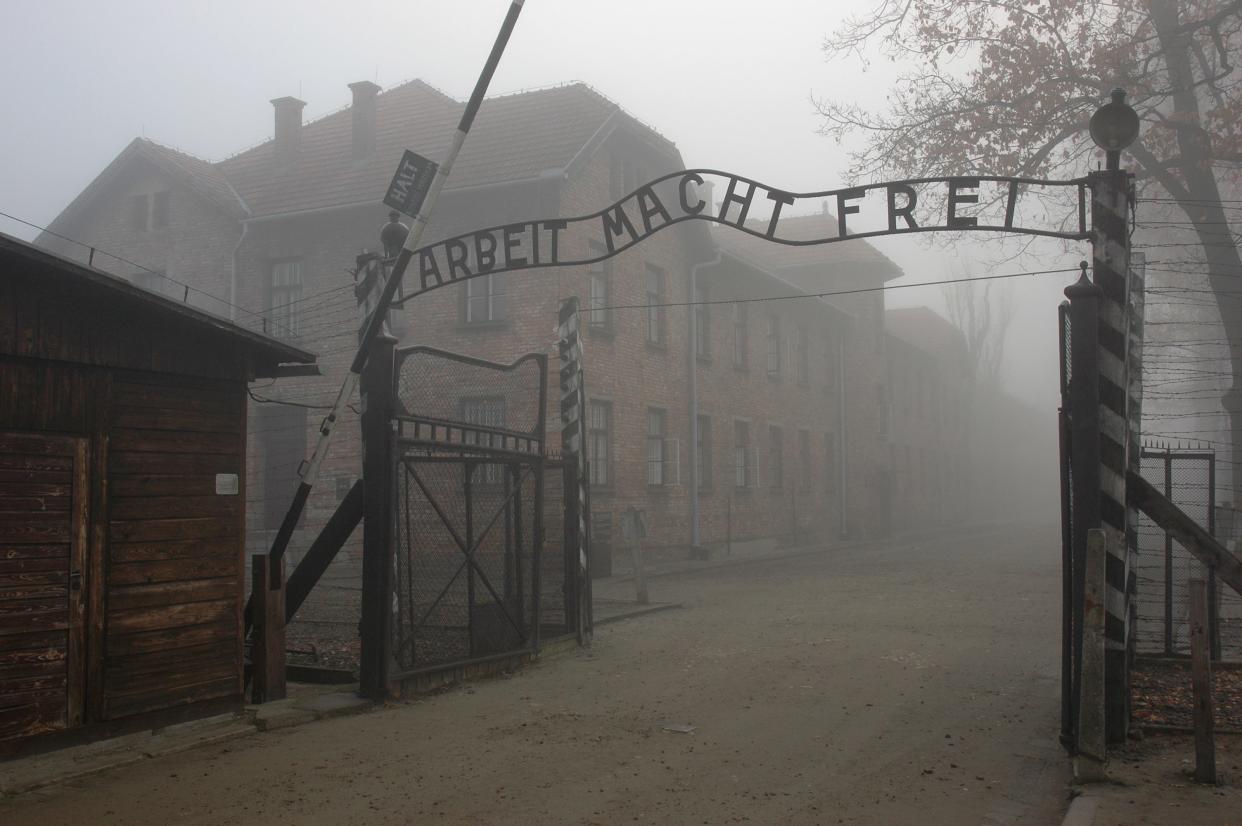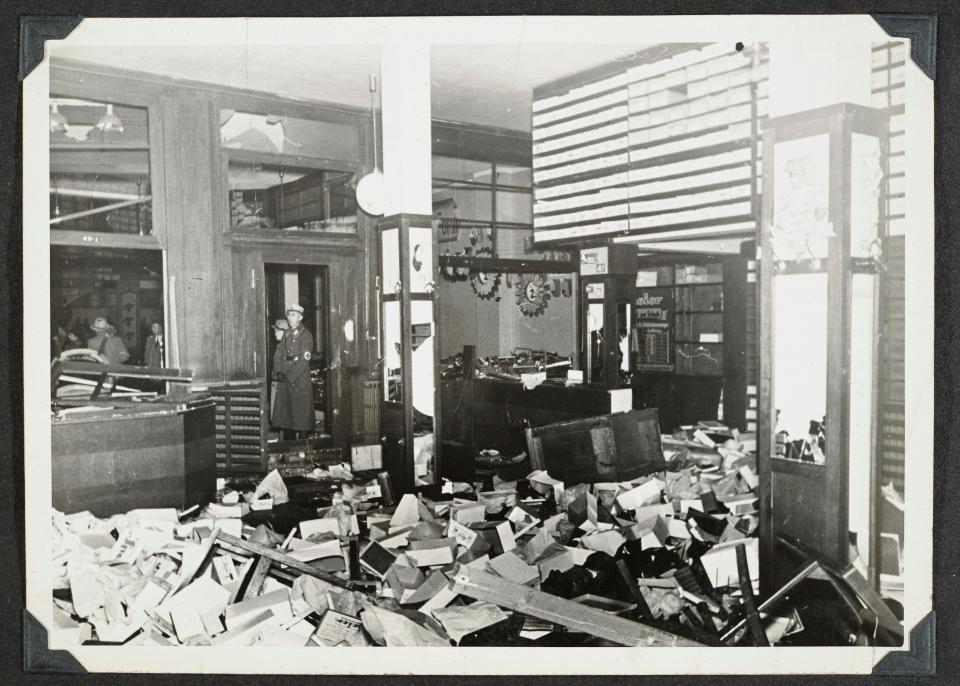MO schools must now observe Holocaust Week, teach about the genocide annually

In the next three years, all Missouri school districts must have a plan in place to annually instruct students about the Holocaust.
They must also designate the second week in April as "Holocaust Education Week" for grades 6-12.
The Missouri Board of Education received an update Tuesday on what steps the Missouri Department of Elementary and Secondary Education and the Holocaust Education and Awareness Commission are taking to help districts meet the new expectations.
The Holocaust was the systemic, state-sponsored persecution and murder of 6 million European Jews by German dictator Adolf Hitler and the Nazi regime and its allies and collaborators from 1933 through 1945. Millions of others were victims of the genocide.
"It is important to understand that Germany was a respected, civilized and advanced country then under Hitler's leadership convinced ordinary people to go along with the killings of Jews," said Dee Dee Simon, chair of the state's Holocaust Education and Awareness Commission, in a presentation to the state Board of Education. "The Holocaust happened because of the words, actions and non-actions of ordinary men and women."
Simon added: "After the end of World War II and the collapse of the Nazi regime, 'Never again' became the cry of Holocaust survivors. Sadly 'Never again' has not yet become a reality."
The Anti-Defamation League recorded 3,697 anti-Semitic incidents in the U.S. in 2022, the highest on record since the ADL started tracking in 1979. They included assault, harassment and vandalism.
"Antisemitism, hate and Holocaust denial are on the rise throughout the world," she said. "Unfortunately, the work of the commission has never been more important than it is today."
Simon also noted a number of Holocaust survivors settled in St. Louis, especially in University City.
Missouri lawmakers called for the creation of the commission in 2006, which is housed in the state Department of Elementary and Secondary Education.
The commission is supposed to be made up of 12 people, including nine appointed by the governor. However, only six of the appointments have been filled.
During the 2022 legislative session, lawmakers mandated all districts provide age-appropriate lessons each year in middle and high schools.
To accomplish that, DESE is creating lesson plans that will be piloted in up to 25 districts across the state during the upcoming school year. All districts must participate by the 2025-26 year.
"Those districts shall determine the minimum amount of instructional time that they deem is necessary for teaching about the Holocaust within their curriculum," said Cammy Goucher, a curriculum developer for DESE.
More: In Missouri, more school districts try to suspend licenses of teachers who break contracts
'Holocaust happened because of human behavior'
Board member Kerry Casey, Chesterfield, said she was deeply moved after visiting concentration camps in Europe and applauded the work of the commission.
Casey said lessons about the Holocaust can help students understand the plight of others. "There are many, many communities in our world that are suffering and I think it's important that we help our children become more sensitive to that."
Board member Kimberly Bailey, Raymore, said if history is not taught, it will be repeated.
"What is scary is it only took a few years to change the mindset of a whole civil society. Unfortunately, the quickest way to unite people is to pick a people group and unite against them ... to point to them and hate them," Bailey said.

Pamela Westbrooks-Hodge, Pasadena Hills, said such lessons are especially meaningful for people who are part of ethnic, racial and religious groups targeted by hate.
She applauded the legislation mandating Holocaust education and the work of the commission. But, she questioned if legislation existed to tell the story of other groups including Missourians who were enslaved.
"It is important that legislatively we are fair and equitable and telling all of those stories and not suppressing those stories," she said. "It is especially ironic because Missouri was a slave state and that was practiced here unlike the Holocaust happened on another continent."
More: Missouri governor signs several laws, including on transgender athletics, health care
Simon responded that that Holocaust was one of the most cataclysmic events in recorded history but the way that it is taught in schools may help other marginalized groups.
"In the past, we used to focus so much more on the where and the when and now we are putting so much more focus on the how and the why because it is important to understand that the Holocaust happened because of human behavior," she said.
She said the education helps people remember how the Holocaust unfolded and the way words, action and inaction of individuals can impact communities today.
"That is how Holocaust education is being changed."
Claudette Riley is the education reporter for the News-Leader. Email tips and story ideas to criley@news-leader.com.
This article originally appeared on Springfield News-Leader: MO schools must now observe Holocaust Week, teach about it annually

